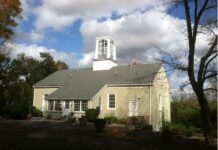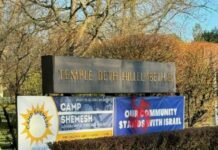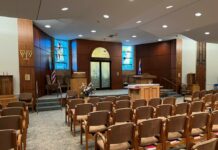Synagogues with energy efficiency needs are considering applying to a new federal grant program for nonprofit buildings, according to area rabbis.
The Nonprofit Energy Efficiency Act will allocate $50 million to the Department of Energy to distribute to religious and other organizations around the country. It is part of the Bipartisan Infrastructure Bill passed by Congress in early November and signed by President Joe Biden on Nov. 15.
Synagogues and other nonprofits can apply for grants of up to $200,000, according to the Jewish Federations of North America.
In a Nov. 8 JTA article about the program, Elana Broitman, the JFNA’s senior vice president for public affairs, called many nonprofit buildings “outdated.”
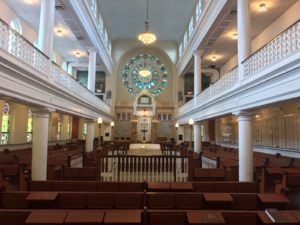
Several local rabbis agreed with her about their own buildings and said they planned to look into applying for grants.
“We would definitely love to be part of that,” said Rabbi Yitzchok Leizerowski of the Orthodox congregation Bais Medrash Harav B’nai Jacob in Northeast Philadelphia.
The rabbi added that his synagogue community is small and “not very well-funded.” He has led the synagogue for 14 years, and his building’s light bulbs and heaters have not been updated in that time, perhaps longer.
At the top of the rabbi’s wish list is LED lighting to replace the congregation’s fluorescent bulbs. The fluorescent lights are “burning constantly,” Leizerowski said, and are a drain on resources.
LED lights would last longer and help the synagogue save money.
Leizerowski also wants LED lights for his building’s outdoor space. He said outdoor lights decrease the possibility of security threats.
The only problem is — with no hired grant writer or volunteers from the congregation with such experience — Leizerowski will have to write the application himself.
“I’m not the greatest grant writer. I don’t know how to put it together,” he said. “I would try to put it together to the best of my ability.”
Bais Medrash is located in a 60-year-old building, Leizerowski said. B’nai Abraham Chabad, in Center City, is in a structure that’s over 100 years old and has similar needs, like better exterior lighting and better-insulated windows, according to Rabbi Yochonon Goldman.
Filling both would satisfy three different synagogue priorities: energy efficiency, security and historical preservation.
“We definitely need to always think about how to restore certain things,” Goldman said.
Goldman called grant opportunities a “regular meeting topic” for B’nai Abraham leaders. The synagogue found success with the application process just last year.
A $70,000 security grant from Pennsylvania helped the synagogue add movable partition walls in multipurpose spaces. The walls have doors and locks, too, in case the synagogue needs to lock down during an emergency.
“It’s not always easy for religious organizations to be eligible for state and federal grants,” Goldman said. “So something that is available is something we’d be interested in.”
Rabbi Albert Gabbai of Congregation Mikveh Israel in Old City is in a similar situation as Leizerowski and Goldman. His building is not quite as old, having opened in 1976, but it does need new air conditioners, heaters and light bulbs.
The heating and air conditioning have not been updated since the building opened, and the light bulbs are not yet LED.
But as Gabbai explained, synagogue leaders are focusing their grant-writing efforts on security. They are looking into both federal and state grants to update the security system, which was installed after 9/11.
Despite the security focus, Gabbai is considering applying for Energy Efficiency Act money. To do so, he would need to figure out measures that could address both safety and energy efficiency.
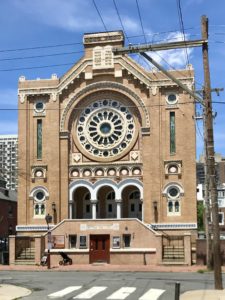
“There are ways they could go hand-in-hand,” he said.
Some synagogues outside the city don’t have the same basic energy efficiency needs, according to their rabbis.
But in the case of Congregation Brothers of Israel in Newtown, there are still needs, Rabbi Aaron Gaber said. They are just more aspirational, like adding solar panels to the roof, instead of something like installing LED lights, which the synagogue has already done.
“It’s an area we’re going to start to look at,” Gaber said of solar panels.
If a building is covered in that area, though, it probably doesn’t need to apply for a federal grant.
The Shirat Hayam Congregation in Ventnor, New Jersey, has added solar panels and LED lights in recent years, and it has no other major needs, Rabbi Jonathan Kremer said.
“Those two things, which are major, are done,” Kremer said. “Nothing else is jumping to the fore.”
[email protected]; 215-832-0740



